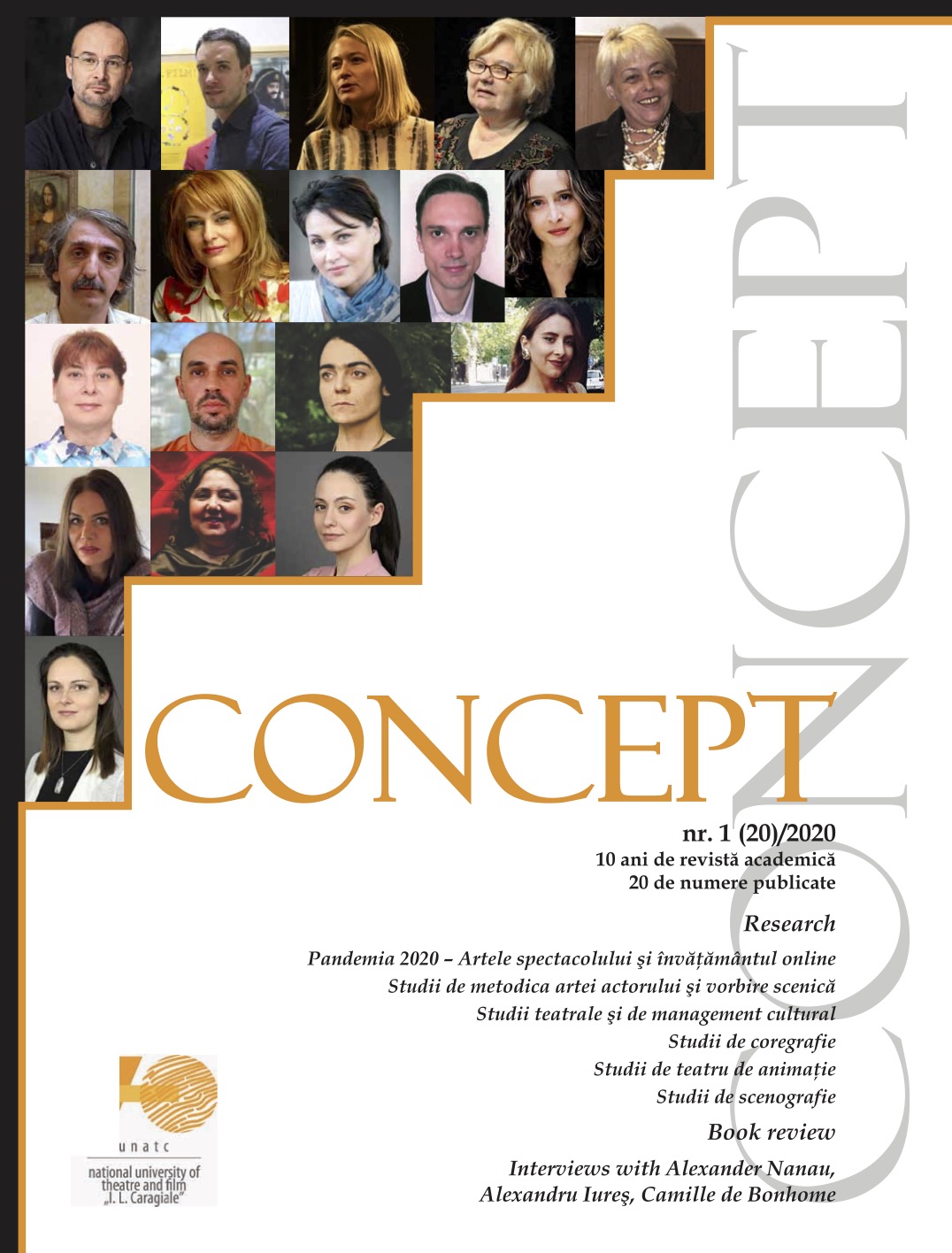Cum să scrii un articol brechtian despre Brecht (Partea I)
How to Write a Brechtian Article on Brecht (Part I)
Author(s): Radu CrăciunSubject(s): Theatre, Dance, Performing Arts, Fine Arts / Performing Arts
Published by: Universitatea de Teatru si Film »I.L. Caragiale« (UNATC)
Keywords: verfremdung; verfremdungseffekt; ostranenie; odchudzny; formalism; grotesque; cabaret; TRAM; modernist drama; Soviet Union; Weimer Republic; brechtian; epic theater; artistic brigades; estrangement;
Summary/Abstract: This is a two part article which strives to trace a cultural history and, as well, a practical framework of the „verfremdung” concept, following its emergence from the earlier theoretical work of Viktor Shklovsky and its ostranenie and Meyerhold’s later „odchudzny”, as he in turn chose to coin Shklovsky’s conceptual frame. This cultural paradigm is important because it renders a precise context and helps to further clarify the importance of „grotesque” in modernist drama and also the means to express it.The first part of the article is dedicated to the cultural exchange and the exposure that soviet modernist drama had in the Weimar Republic Germany and how Brecht was acquainted with the formalism developed by Meyerhold and Shklovsky. It reads like a travel log, concentrating on how Brecht’s antourage, such as Asja Lācis, Walter Benjamin, Vasilij Lunacharsky, Eisenstein, Tretiakov, Bernard Reich familiarized him with theideas of Meyerhold either directly or through their own work, which was stemmed as well from Meyerhold’s pre 1917 theatrical experiments. Finally, as secretary general of the Department for Theater in the Illumination Minister (Education), Meyerhold encouraged the developement of labourers artistic brigades, or TRAM, blue-collar workers. The TRAM performances, akin to the cabaret performances of the early 1900’s had a profound influence on the left leaning theater practitioners in Western Europe. Through this network of people that were influential to Brecht’s carreer I closely follow the developement of epic theater and the „verfremndungseffekt”, from his debut in directing, with Leon Feuchtwanger’s „The Life of Edward The Second, King of Scotland” up to Brecht’s work being formally introduced into the artistic life of Soviet Union, with the adaptation of his „Three Penny Opera” by Tairov in Moscow in 1930 and also Brecht’s direct contact with Meyerhold’s theater, during the latter’s 1930’s tour in Germany and France. The end of this fructuous exchange came to a brutal end as Stalin began his Purge in the Soviet Union and Hitler began his rise to power in Germany. Meyerhold was executed after a swift trial and Brecht had to flee Germany, settling in the United States during World War 2.
Journal: Concept
- Issue Year: 20/2020
- Issue No: 1
- Page Range: 150-160
- Page Count: 11
- Language: Romanian

